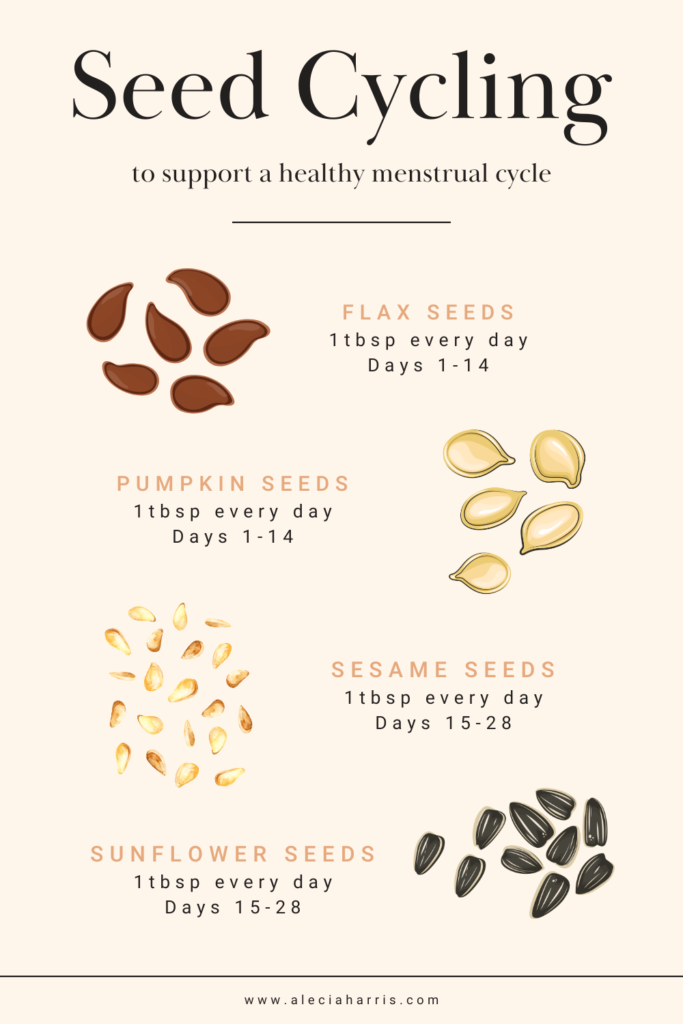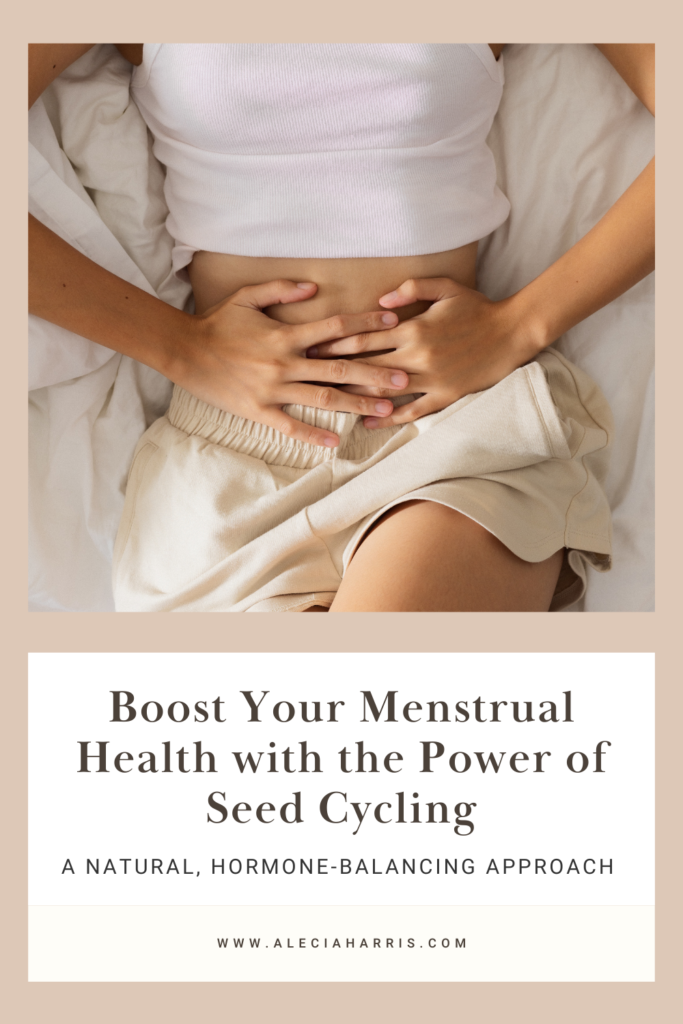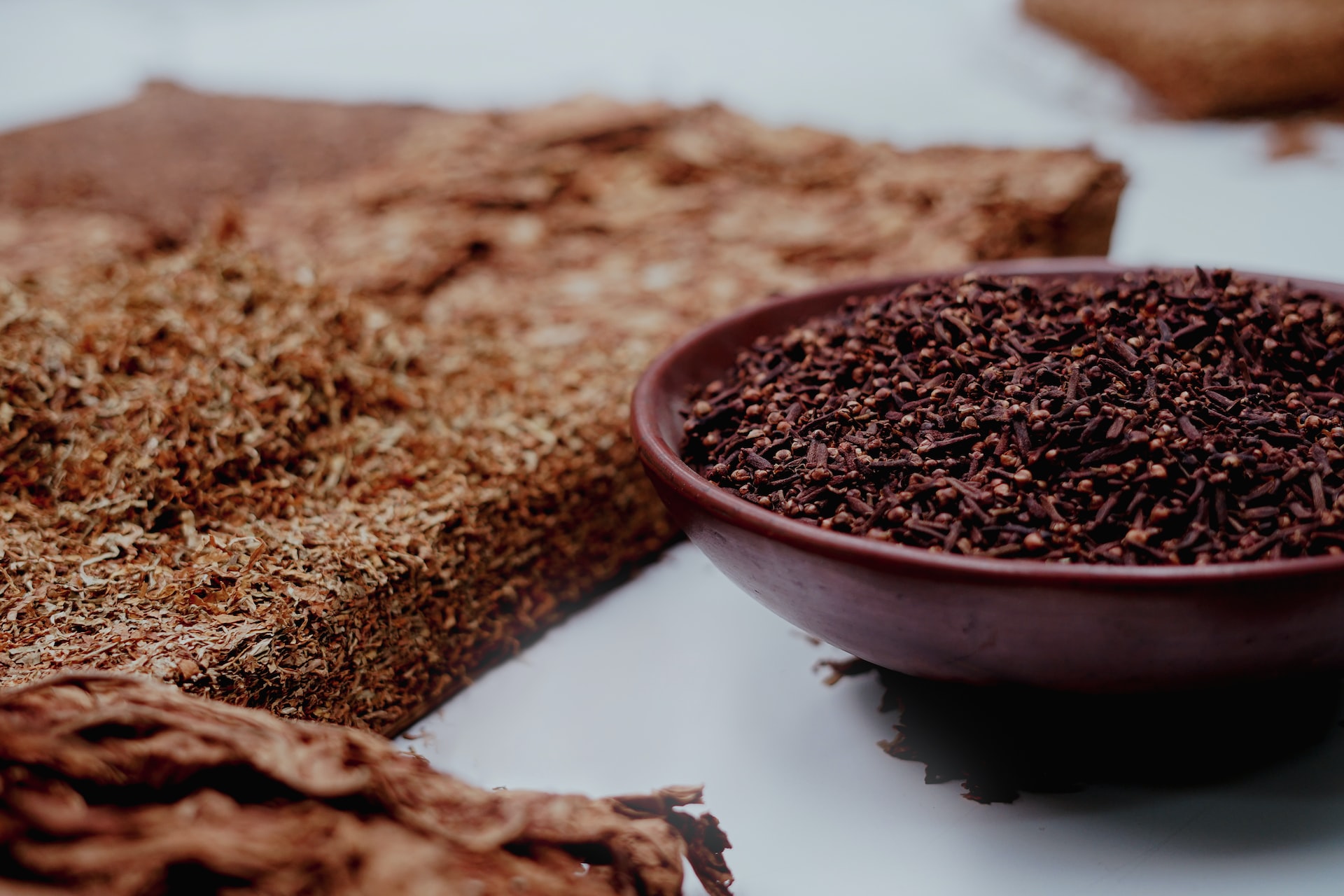If you’re tired of feeling like a hot mess every month, it’s time to try seed cycling. No, we’re not talking about riding your bike to the farmer’s market (although that’s always a good idea). Seed cycling is a natural way to balance your hormones and support your menstrual health by consuming specific types of seeds at different times in your cycle.
During the follicular phase (aka the first half of your cycle, starting on the first day of your period and ending just before ovulation), you should be chowing down on 1 tablespoon each of ground flax seeds and pumpkin seeds every day. Flax seeds are packed with lignans, which help balance out your estrogen levels, and pumpkin seeds are loaded with zinc, which is essential for ovarian function.
When the luteal phase rolls around (the second half of your cycle, starting just after ovulation and ending with the start of your next period), switch things up and eat 1 tablespoon each of ground sunflower seeds and sesame seeds daily. Sunflower seeds are high in vitamin E, which helps boost progesterone production, and sesame seeds are loaded with calcium and magnesium, which can help ease premenstrual cramps and other pesky symptoms.
Need a visual? I got you, boo.

Flax Seeds / Pumpkin Seeds / Sesame Seeds / Sunflower Seeds
While you’re perusing, save this to Pinterest or screenshot it to your phone so you can always have a reference to check as you move through your cycle.
Just remember to grind those seeds up before you eat them – it makes them easier to digest and helps your body absorb all those tasty nutrients. You can mix them into meals, smoothies, yogurt, or oatmeal, or just snack on them straight.
Yes, it’s THAT easy!
Seed cycling is a super simple and effective way to support your menstrual health, but it’s not a replacement for medical treatment. If you’re experiencing any abnormal or concerning symptoms, make sure to talk to a healthcare provider. Trust us, your uterus (and the rest of your body) will thank you.



